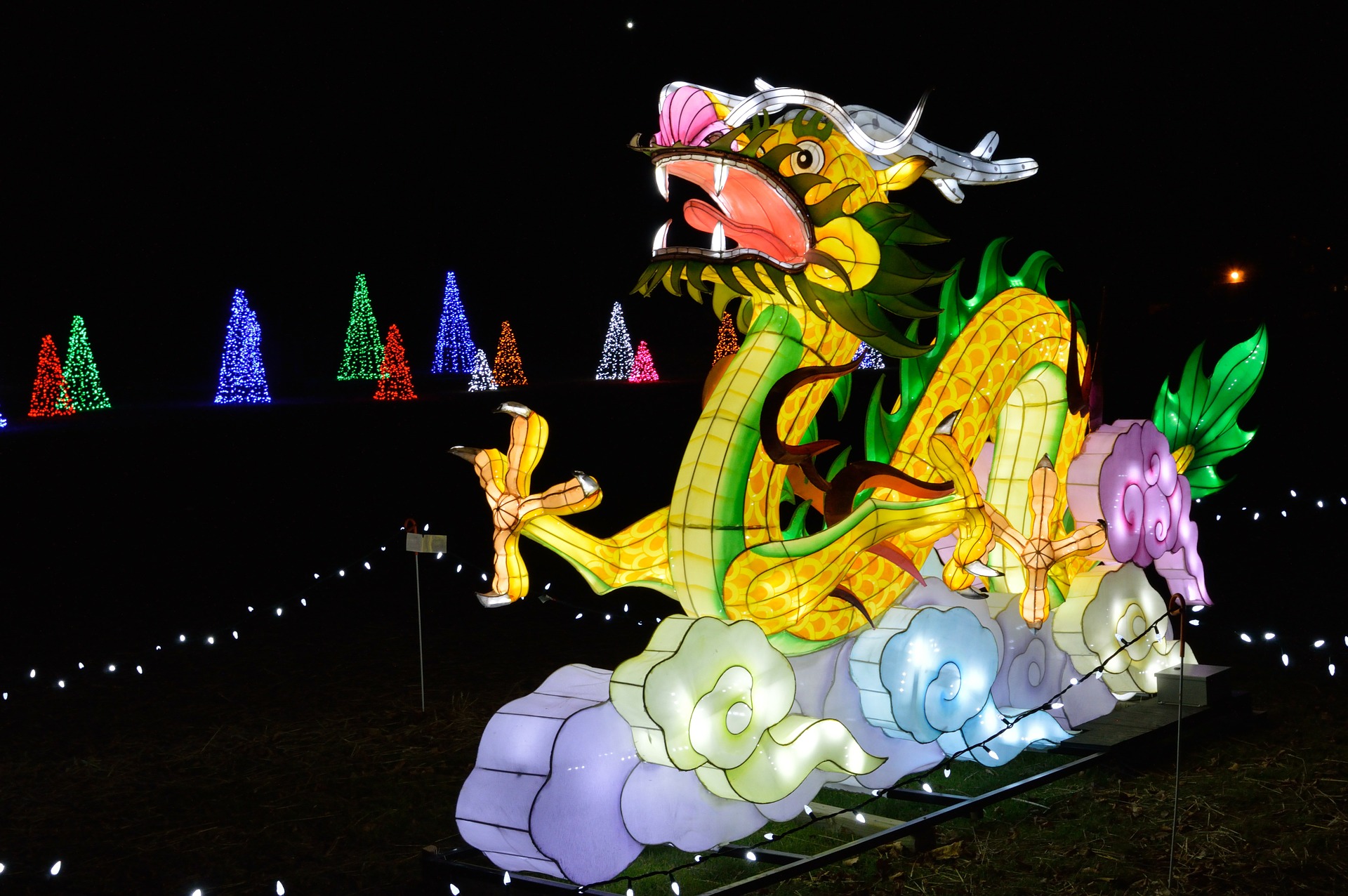Despite the fact that the Celestial Empire has enough of its own memorable dates, holidays and festivals, its inhabitants still glance with curiosity at elegant Christmas trees, sparkling champagne in glasses, valentine hearts and even a fat “thank you” turkey. All these material attributes of the holidays that have become the same mundane are gradually migrating to the streets of Chinese cities and to the houses of ordinary Chinese.
Christmas (圣诞节 shèngdàn jié)
Western (Catholic) Christmas in China is becoming more and more popular, and, despite small protests from the guardians of national authenticity, by December 25, brightly decorated, sparkling Christmas trees are growing in shopping centers, hotels and squares. They often appear at the initiative of Western companies operating in the same malls or owning offices in central urban areas. Christmas is not officially celebrated in China, and there are no religious symbols in the decorations and paraphernalia. And although such a Christmas is more likely an engine of trade that attracts ordinary people with the glossy sheen of gift wrapping, many Chinese people, even not being Christians, believe that the holiday belongs to something divine, higher and congratulate relatives and friends with it.
New Year (元旦 yuándàn)
Although the Chinese have their own new year, which usually falls on the lunar calendar in February-March with a festival lasting several weeks, interest in Western traditions still prompts a number of people to noisy festivities on the night of January 1. In addition, Western New Year is officially celebrated in China – in honor of it, hardworking Chinese are given one day off – January 1. Large concerts, fireworks and other entertainment events are usually held on this day. Young people and other citizens who are not burdened with the burden of everyday worries visit them with pleasure. But in general, the attitude towards the New Year in China is cool, and if we compare it with our Russian pre-New Year psychosis, then we can safely say that the New Year is not celebrated in the Celestial Empire at all.
Valentine’s Day (情人节 qíngrén jié)
Being very loving, the Chinese are happy to celebrate Valentine’s Day, giving away hundreds of valentines – paper and electronic. But, being also very entrepreneurial, they are promoting their trade and production at a Stakhanovian pace, selling these same valentikas, as well as sweets, toys and original gifts in social networks. nets, not to mention roses and other expensive flowers. Valentine’s Day has been celebrated in China for more than 20 years, every year giving joy to lovers and hope to everyone who wants to join them.
Halloween (萬 聖 夜 wàn shèngyè)
Unlike Christmas, at least in its external, non-religious form, which came to the Middle Kingdom, Halloween for the Chinese is an empty phrase. Perhaps somewhere in the windows of overseas shops you can see creepy pumpkin grimaces, and on the campus of a large university you can meet a zombie or a ghoul who is studying Chinese for foreigners, but the Celestial Empire is indifferent to these traditions of the ancient Celts. Sure, in big cities the bars are full of expats and their Chinese friends all night long themed parties, but that’s where the creepiness ends.
May 1 (国际 劳动节 guójì láodòng jié)
It is on this date that International Labor Day (Spring and Labor Day in Russia) falls, which is officially celebrated in China. And, oddly enough, it was on this day that the government decided to free citizens, in fact, from labor, by approving an official day off. If it falls on Saturday or Sunday, it is postponed to Monday, creating a series of three free days – a sacred number that foreshadows the appearance of huge crowds of Chinese tourists wherever possible – streets, parks, hotels, restaurants – everything will be busy with those who want to unwind and see the world inhabitants of the Celestial Empire.
8 March – International Women’s Day (妇女节 fùnǚ jié)
March 8 is a public holiday of the PRC, on which ladies who work on an equal basis with men in the most difficult conditions and are probably happy with this achievement (although Clara Zetkin did not fight for this), receive a little day off, but there is no official day off on March 8. Men in large numbers buy gifts for their wives, mothers, sisters, etc., thus spinning the flywheel of trade. And the lovely ladies themselves most often spend their day off shopping.
Thanksgiving (感恩节 gǎn’ēn jié)
Thanksgiving is also celebrated in China, although not massively. Turkey and traditional Western food fill the tables, and the Chinese thank each other for everything. This holiday is especially popular among Chinese Christians, because preachers came here from the west, where people thank God and pray before eating.
Outcome
Western holidays and cultural traditions on the wave of globalization really penetrate into China and find their fans there. However, the essence of some of them is practically lost among the endless tinsel and trade showcases, offering more and more material expressions of non-material feelings. In China, as in the world’s most important factory, this is especially noticeable. But China is no exception, the same thing is happening all over the world, addicted to rampant consumption. However, one should not judge strictly – both in China and everywhere there is a place for warm human relations: to meet with relatives for the New Year; leave work early to be with your beloved (s) on Valentine’s Day; write a verse and make a postcard with your own hands to please your mother on March 8; help the poor and needy at Christmas and thank God (or Heaven) for the past year – everyone can create a real holiday with their warmth. And the Chinese never forget about it.
